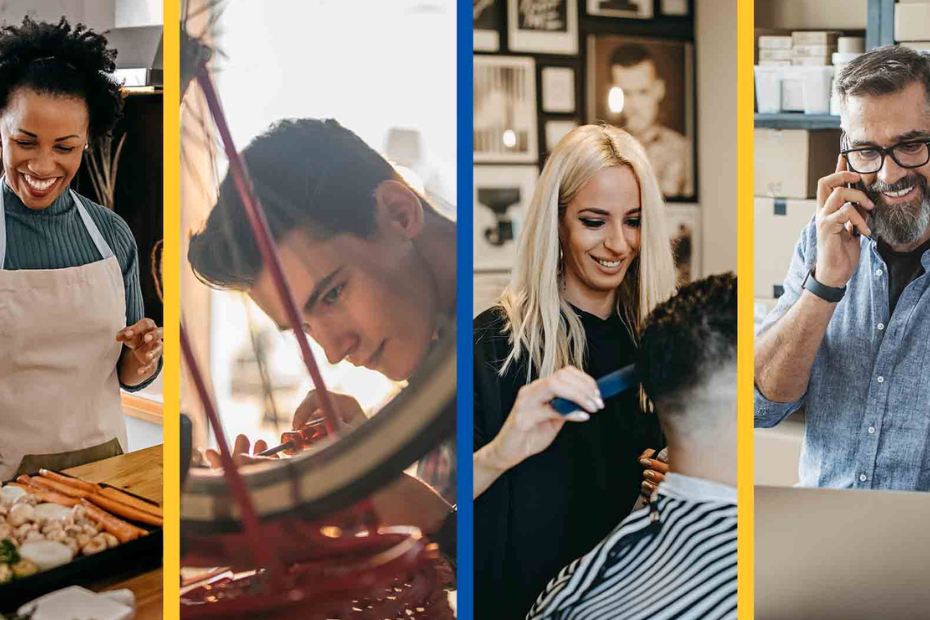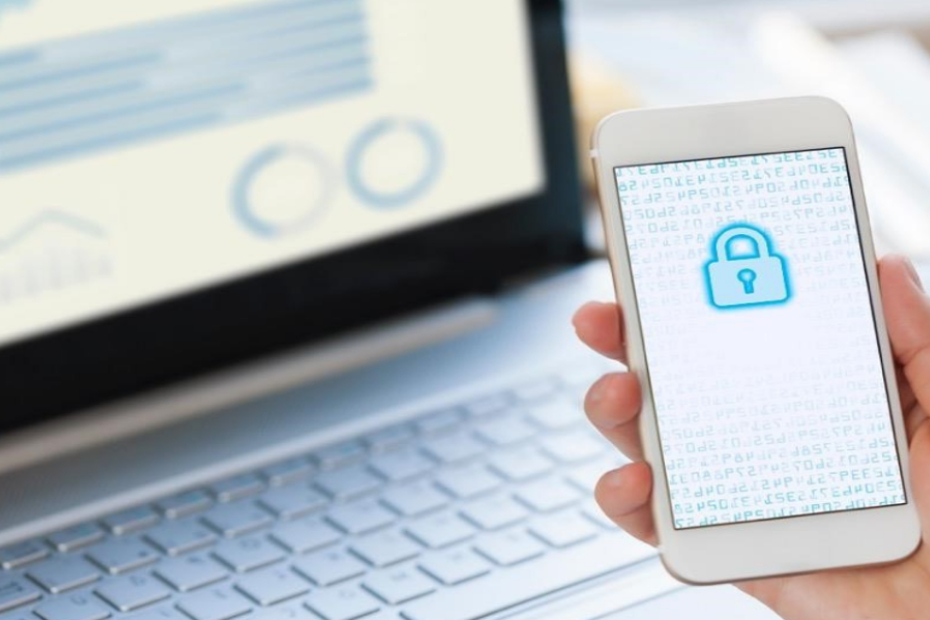In this month’s edition of TECH TO, four tech leaders shared how the missions of their companies have shifted, and how they are repurposing their technology to assist with the current crisis.
Leading with Empathy: Marie Chevrier, Founder & CEO of Sampler, virtually sat down with Andrew Macdonald, SVP Global Rides at Uber for a Q&A about how they are pivoting, and repurposing their unique superpower while ride sharing is down
Q: How is Uber dealing with the pandemic?
Macdonald: When you’re a company that moves the world and the world stops moving, that can be very challenging. There is no precedent or playbook for this.
To deal with this crisis, Uber has kicked off a number of new initiatives, and leaned in on existing functions that have been working, such as Uber Eats. You can now order groceries through Uber Eats too. We are also looking at things like pharma delivery, we’re doubling down on grocery delivery, and doing a fair bit of B2B delivery. And, some families are ordering cars to send packages to other family members through the app. We’ve had to move quickly to put this all into action.
Q: How could Uber prepare for something like this?
Macdonald: We definitely weren’t prepared for a challenge of this magnitude. When we realized what was upon us, we very quickly got a group together, of 50 leaders representing every function. Over two days in early March we aligned on a set of principles for how we wanted to operate, what we would do for employees and customers, and how we would deal with daily crises.
Our set of principles rest on intellectual honesty (i.e., trusting the experts), quick decision-making, and being honest with our employees about why we’re making the decisions we are. We will admit when we make some mistakes, but we’re always honest about what we’re doing and why.
Q: How have you worked through making human decisions during this time?
Macdonald: We operate with empathy — for both our employees and the people who use our platform. When you open the app, you now see the message: “Stay home if you can.” People have been surprised that we tell them not to use the service, but not everybody can stay home. People at the hospital and the grocery stores … they have to go out and work. So you should stay home.
Q: 13,000 people report to you. What are some things other leaders should be keeping in mind?
Macdonald: One of the unique challenges has been internalizing that this is both a work crisis and a family crisis. Usually when you have a crisis at work, everything at the home front can be OK. People are dealing with really tough personal and business situations.
So we are thinking about how we can be supportive with flexible schedules for those with child care needs. We just sent a survey to staff: “How are you doing, how are we doing, what resources do you need?” You have to lead with empathy.
Q: You mentor a lot of startups. What are you telling them now?
You have got to make quick, aggressive decisions to preserve your runway, especially if you’re going to be hurt by this crisis. If you’re a business with an opportunity (i.e., an online communications platform), you need to lean in hard and get aggressive — but also think about how you can do right by your community. This is where brands are built in the long-term.
You might not be in a position to donate cash … so what can you do? We are giving free rides to healthcare workers, and free meals to seniors. Think, ‘how can you use your superpower to help?’
Raise of the Month: Raising During Difficult Times
Mike Silagadze, Founder and CEO of TopHat, spoke during the Raise of the Month segment, having just closed a Series D round. Co-host Alex Norman asked: How can you raise at a time like this?
TopHat is an education technology company that is trying to modernize the post-secondary education system by reinventing the lecture experience, replacing paper-based textbooks and enabling online communication between educators and students.
Silagadze admitted that online learning is seeing a tremendous increase at the moment (for which he says he feels guilty, with so many companies around them struggling). Some changes that would normally take 5-10 years to occur will now take 6-12 months. A week into the crisis, for instance, students were told they had to write exams remotely. So within a span of a week, TopHat built a remote proctoring tool and rolled out a whole marketing campaign. Inbound leads shot up 1000 per cent year over year.
He reminded us that in 2010, on the heels of the previous massive recession, it was close to impossible to raise. While it was a different time, many of the same dynamics have been playing out: There are no active investors, and nobody is writing cheques. “The reason we were able to ride out the first storm is that we focused on creating value for our customers and having product/market fit nailed. Also, we focused on revenue from Day 1.”
He further expanded: “Ultimately, revenue and product/ market fit are closely tied. If you have a product that people are willing to use for free, but not willing to pay for, that might be a sign that you don’t have product/market fit. Charging money for your product is the surest sign you’re building something people want.”
From an investor’s perspective, Silagadze suggested that this may be the best time for VC’s to be writing cheques. “This is the environment where the next category leaders are going to be formed. The only companies that are going to survive in this environment are those that are super-determined and have product/market fit. When everyone else is paring back, this is the time to get aggressive.”
So how do you approach a VC right now? Silagadze says, “Nothing speaks like revenue. If you can show you’re profitable, that’s the way to survive. You need to cut your expenses to the point you’re sustainable and focus on growth and adding value to your customers. If you’re still burning cash, you’re in trouble. You need to extend your runway.”
Advice: How to Avoid Making Fear-based Decisions
Jeff Booth, entrepreneur, advisor and author of “The Price of Tomorrow” spoke next about the importance of looking at the future at the macro level.
“If I’m leading a company right now, my natural instinct is to worry about immediate needs,” he admitted. “So why is it important to look at the bigger picture?”
“It’s hard to make good decisions if you’re making them from a position of fear,” he explained. Which is what a lot of companies are doing right now. While you need to ensure you have runway, you also need to avoid having to make fear-based decisions.
When you’re able to get out of fear mode and take a step back, you can discover ways to become creative with your business. “Things are moving faster now,” he said. This creates opportunity.
How a Remote Model Can be a Recipe for Success
Ryan Hoover, Founder of Product Hunt joined remotely from his home in LA. Product Hunt has always been a remote team, and Hoover believes the model is a secret of their success.
“With a distributed team,” he said, “you have access to the world’s talent.” Admitting that it is hard to recruit in the San Francisco Bay area, being distributed allows Product Hunt to bypass the competition. To enable a remote workforce, they have their engineers build entire products or features end-to-end, without having to wait for someone else to complete one part. This eliminate the problem of different time zones, and allows for products to be built and tested while others are sleeping. “It allows us to make progress 24/7.”
Another benefit is the global perspective they get. “Because we have people around the world, we gain a little more insight in terms of what our audience wants.”
To get employees with the right mindset for a remote gig, Hoover explains they recruit former founders, or people who have built side projects on their own.
As an example, their team has seen COVID-19 related projects launching every day as people around the world are coming together to help those who are struggling. “They are hacking together, sharing ideas about projects, and getting really excited. A surge of the maker, entrepreneurial mindset is happening.” Product Hunt’s version of an online hackathon devoted to COVID-19 related products has just wrapped up, with output coming soon.
So, what’s your superpower? Can you repurpose your job, your mission, your product to be a force for good during this time? Can you pivot to make a difference?
On May 11th, TechTO comes together again for a free virtual event. As Canadian tech companies, leaders and workers continue to step up and find ways to help, chances are more superheroes will be unmasked.
This article is intended as general information only and is not to be relied upon as constituting legal, financial or other professional advice. A professional advisor should be consulted regarding your specific situation. Information presented is believed to be factual and up-to-date but we do not guarantee its accuracy and it should not be regarded as a complete analysis of the subjects discussed. All expressions of opinion reflect the judgment of the authors as of the date of publication and are subject to change. No endorsement of any third parties or their advice, opinions, information, products or services is expressly given or implied by Royal Bank of Canada or any of its affiliates.



















